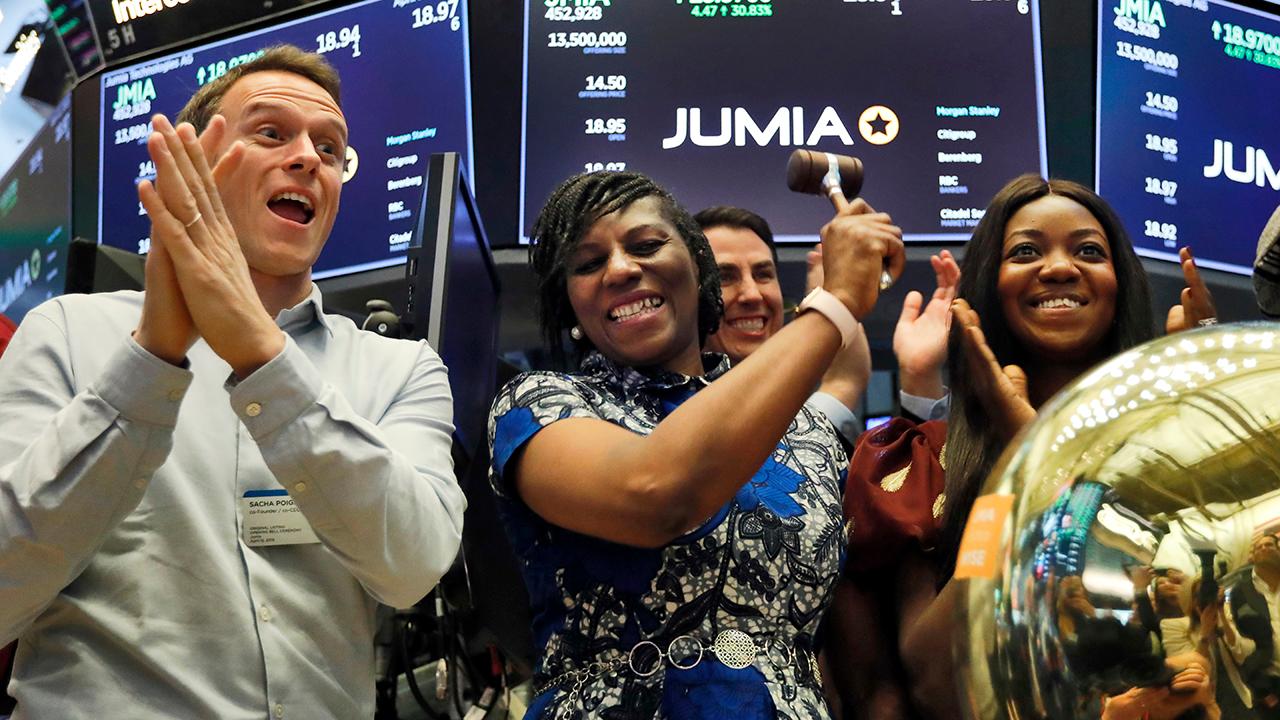Jumia makes history as first African unicorn to hit Wall Street
Jumia, Africa’s largest e-commerce company, made history on Friday as the first African tech startup to list on the New York Stock Exchange.
The company kicking off its first full week of trading with a new high of $39.95 – up 50 percent from its opening share price.
Known as the “Amazon of Africa”, Jumia opened at $18.95 on an initial listing price of $14.50. The stock soared more than 60 percent in its first few hours of trading – outperforming both Lyft and Levi Strauss in their debuts this year.
“We operate on a big continent where e-commerce is very relevant,” Sacha Poignonnec, Jumia’s co-CEO, said during an interview with FOX Business' Gerri Willis. “Our investors see the potential in Africa, in our business model and in our execution.”
Jumia is also the first African “unicorn” to come to market, meaning the company has a valuation of more than $1 billion. And like many big tech unicorns, Lyft and Uber included, Jumia is unprofitable. But Poignonnec said there is huge potential for future growth profitability in Africa because there are still a lot of people who have yet to discover the benefits of e-commerce.
“Twenty years ago in the U.S., people started to use e-commerce," he said. "And now they’re starting to do the same in Africa. We have plenty of growth opportunities ahead, and we hope that one day we will become profitable.”
Notably, it took Amazon six years after going public to finally secure a profitable year.
Last year, Jumia boasted 4 million active users and more than 80,000 active sellers on its platform, which offers everything from cell phones to ceiling fans. But it’s not just retail; the company also offers a laundry list of services including food delivery, travel bookings and advertising.
CLICK HERE TO GET THE FOX BUSINESS APP
When asked what the top selling product on the site is, Poignonnec rattled off some familiar items: mobile phones, clothing and beauty products.
“Overall," he said, "Africa is just like everywhere else. Consumers need to buy all the usual things”.




















